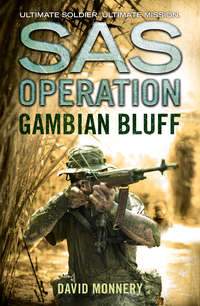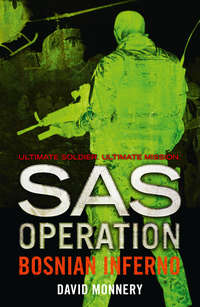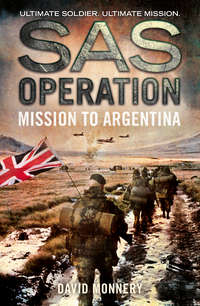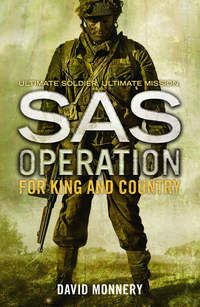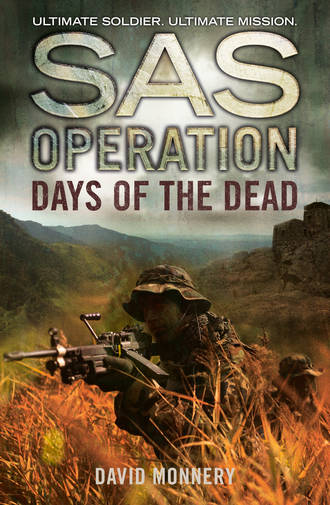
Полная версия
Days of the Dead
The guard picked up his phone to confirm it, and after a few words with someone nodded Shepreth in the direction of the lift. ‘Fifth floor,’ he said grudgingly, reaching for his comic.
It seemed unlikely that he’d be watching the lighted floor numbers above the lift, but Shepreth went all the way to five just in case. On his way to the stairs he passed the door of the travel agency, with whom he had earlier arranged the necessary appointment. He hoped they would wait at least ten minutes before phoning down to find out what had happened to him.
The office he was interested in was on the third floor. There was no writing on the glass door, and he didn’t expect to find a happy bunch of workers inside. Certainly, whoever was renting the space hadn’t taken much trouble to protect any contents – the door yielded to Shepreth’s lock-picking expertise with almost insulting ease.
The room proved even emptier than he had expected. The fluorescent light revealed no desk, no chairs, no filing cabinets – just a fax machine and a shredder floating on an ocean of burgundy-coloured carpet. ‘Snap,’ Shepreth murmured as he read the fax’s number.
Now all they needed was evidence linking this office with the prison on Providencia. Which wouldn’t be easy. Presumably each missive from the island was consigned to the shredder the moment it had been read. He would have to try to set up an intercept of some sort, Americans or no…
As if in answer to a prayer the fax clicked into life. Shepreth stood over it, hoping it wouldn’t be someone trying to sell Bazua double glazing for his prison.
It wasn’t. The fax, emanating from a number which Shepreth recognized as including the prefix for Colombia’s two Caribbean islands, contained the usual list of buyers, together with amounts, beeper numbers and instructions for onward transmission to the organization’s cell head in northern Mexico. The Americans wouldn’t be able to ignore this, Shepreth thought. They would either have to add Bazua to their precious list of kingpins or come up with an honest reason for refusing.
He detached the sheet from the machine, folded it twice and put it in his back pocket, then headed for the door. He listened for a moment before inching it open. The corridor was empty. Relocking the door seemed more difficult than unlocking it had been, and he was still struggling to engage the catch when the lift doors suddenly opened behind him and two men emerged, guns in hand. He had no time to do anything but stare sheepishly at them.
‘Looking for Azul Travel?’ one of the men asked. He was probably in his mid-thirties, with a pencil moustache and uneven teeth.
The other man, who was younger and wearing tinted glasses above his pitted cheeks, sniggered.
They advanced, one man pushing into the unlocked office while the other kept him covered.
Shepreth just stared at him, willing his mind to keep on working through the fear that was threatening to choke it off. If it didn’t his chances of living past midnight were remote. Even if he stayed James Bond-cool they were less than good. The thought plunged him further into shock – in eight years of working for MI6 he had not often found himself at the mercy of people with so little interest in his living and so little fear that they would have to pay for his death.
The one with the moustache pushed Shepreth into the office, closing the door behind himself, and then stood with his gun in the Englishman’s ear while his partner did the frisking. This didn’t take long. Pitted Cheeks stepped back, shoved Shepreth’s automatic into his waistband, unfolded and read the stolen fax, then examined the wallet.
‘You’re a long way from home, English,’ he said in conversational Spanish.
‘So are you,’ Shepreth replied in the same language, recognizing the man’s Colombian accent. He wondered if his voice sounded as brittle to them as it did to him.
‘Panama used to be a part of Colombia,’ Moustache told him.
‘It still is,’ his partner said, and both men laughed.
Shepreth said nothing.
‘You have probably come to Panama to see the Canal, yes?’ Pitted Cheeks asked playfully.
‘I’ve seen it,’ Shepreth said.
‘Not from underwater,’ Moustache said almost perfunctorily, leaving Shepreth with the stomach-sinking realization that the two of them had been through this particular sketch several times before.
Pitted Cheeks, meanwhile, was picking out a number on the phone. ‘I need to speak to the Chief,’ he said when someone answered, and a few moments later, smiling all the while at Shepreth, he was reporting what had happened. He then listened for a while before signing off and putting the phone back down on the carpet. ‘The Chief has a few questions for you,’ he said.
Shepreth found himself taking a deep breath of relief.
‘But not too many,’ Pitted Cheeks added, reading his mind. ‘We’ll probably still have time to show you the Canal tonight.’
The ludicrous thought flashed through Shepreth’s mind that he would never know who won Euro 96. Get a grip, he told himself. This was life and death.
They led him down the deserted stairs and out into an empty alley, and Moustache kept a gun on him while Pitted Cheeks went off, presumably to collect their car. This might be his only chance, Shepreth thought, but really it was no chance at all. Moustache was too far away for a lunge and there was no reason to suppose the Colombian would do anything other than put a bullet in Shepreth’s kneecap if he tried. And then he’d never get another chance.
Despite the training, despite what his head told him, it all seemed unreal somehow, standing there so helplessly in an alley in Panama City, with a man who’d more or less promised that he’d never see another dawn. The sounds of the city were all around them, but strangely distant, as if the alley was enclosed in thick but invisible glass.
The Colombians’ car bumped its way towards them, shattering the spell.
Pitted Cheeks got out and the two of them discussed whether or not to put him in the boot. They decided against, reasoning that if they knocked him out the questioning might be delayed, but if they didn’t he might drum on the lid at the wrong moment. They both clearly enjoyed this discussion – such attention to detail, Shepreth realized, was their proof of professionalism. These men might be lacking in humanity, but not in job satisfaction.
He was ordered into the wide back seat of the car, a black Toyota Camry, and Moustache climbed in beside him, eyes watchful, careful to keep a couple of feet between prisoner and gun.
Pitted Cheeks got in behind the wheel and started the car rolling forward. They turned left out of the alley on to Calle 36 and purred uphill towards Avenida 3, now jostling with people out for their evening stroll through the shopping district. Shepreth thought of lunging for the door, but knew it would be fatal – Moustache’s eyes had not left him for a second since they entered the car.
They crossed Avenida 3 and headed up towards the next big crossroads. In ten minutes they might be out of the city altogether, Shepreth thought. If he was going to do anything, it had to be soon. But what? He felt paralysed. Moustache smirked at him, as if he knew exactly what was going on in his prisoner’s mind.
As Pitted Cheeks waited to turn right on to the busy Avenida 2 a bus first lurched forward and then abruptly pulled up again as the lights changed. This motion not only fooled Pitted Cheeks, who paused for a second before pulling out, but also a taxi coming up on the blind side of the stalled bus, which was through the red light before the driver had realized his mistake. His emergency stop would have pleased his original instructor, but there was no way he could avoid making contact with the side of the Toyota.
The crash was louder than it felt, and Moustache’s gun hardly seemed to waver, but the taxi driver was already out on the street and hundreds of eyes were turned their way. Two of them, Shepreth realized with sudden hope, belonged to a traffic cop who was now walking their way.
Moustache had seen him too, and the gun was now in his pocket, albeit still obviously aimed in Shepreth’s direction.
Pitted Cheeks climbed reluctantly out of the Toyota, just as the cop arrived to take charge. As he looked into the car Shepreth deliberately reached for the door handle, opened the door and climbed out on to the street. No bullets gouged into him.
He smiled at the cop and leant against the car’s roof for a moment until the man’s attention was back on the two drivers. There had to be about two hundred people standing around enjoying the show, and the cop was obviously going to milk the spotlight for all he could. A cacophony of horns was rising from the stranded traffic.
‘I’ll see you later,’ Shepreth told Moustache, and began walking away. Ten steps later he was through the first line of watchers, and looking back he could see that neither of the Colombians was making any attempt to follow him. He walked on along the crowded pavement, his heart thumping in his chest, hardly daring to believe his luck.
From Avenida 2 he took a taxi to his hotel, tipping the driver with a generosity which the man appreciated better than he understood. It took Shepreth three minutes to clear his room and check out; fifteen minutes later he was registering at another hotel under another name, using the alternative identification he carried for such emergencies. He didn’t think the Colombians would come looking for him – the risks seemed to outweigh the potential benefits – but he spent most of the night dozing in a chair, fingers wrapped round the butt of his other gun.
4
With an hour-long stopover in Quito, Docherty’s journey from Santiago de Chile to Mexico City took just over ten hours. For almost all of the first flight he was able to stare out of his window at the majestic Andes, but most of the second was over water, and the choice of entertainment came down to either Arnie Schwarzenegger or his own thoughts.
Five days had passed since he and Isabel had visited the Macíases in Devoto, two since their return home from Buenos Aires. He had watched out for signs that his wife was regretting her decision to approve the trip, but, natural anxieties apart, there had been none that he could see, and on the eve of his departure, after they’d made love on a bed still strewn with his packing, she had made her feelings clear. ‘If it wasn’t for the children,’ she had told him, ‘I’d be coming with you. In fact, there’s one voice inside me says I should be going instead of you. These are the people I’ve been fighting all my life. The people who killed my friends.’
Sitting in the plane, Docherty could see her face on the pillow, the same mingling of determination and anxiety in her dark eyes, and he could remember that moment in the car outside Rio Gallegos in 1982, when the rest of the SAS patrol had been captured and she’d refused to head for the border alone. ‘I could cross ten borders and never leave this war behind,’ she had said at the time.
But what was his excuse? Terrible things had been done in Argentina, but the same could be said of many other countries, and though he had more than a vague attachment to old-fashioned notions of justice, Docherty had no desire to take on the mantle of a one-man crusade. The money would be nice, of course, but that wasn’t the reason for his presence on this flight either – in fact he wasn’t at all sure what his motivation was. He hoped it was more than an older man’s attempt to relive his youth. ‘But I wouldn’t bet money on it,’ he murmured to himself.
He shook the doubts aside, and picked up the guide to Mexico City which Isabel had bought for him the previous day. In his two stays there in 1977 he had found the place oppressive, but that was hardly surprising – during the first he had still been crazy with grief and by the time of the second he had the rest of the country to compare it with. In nearly five months of travelling he had fallen in love with Mexico, its people and its churches, its mountains and its beaches.
A part of him had always meant to go back, but another part had feared that for him the country would always be entangled with memories of Chrissie. It was her senseless death on a zebra crossing just six months after their marriage which had driven him abroad in the first place, and fate had decreed that Mexico should be the place which brought him back to life. The life he had given to the SAS and his family, and not necessarily in that order.
He turned his attention to the present. If Gustavo Macías was right, and Lazaro Toscono’s business in Mexico City was just a drug-trade front, then he would have to be careful about how he approached the man. It would not do to start hammering on the bastard’s front door before he found out what was behind it. As one of his old SAS instructors had put it: a few hours of observation is worth a thousand stun grenades.
It was a pity he had no local contacts – he’d made friends in Mexico, but none in the capital. It suddenly occurred to Docherty that he might be able to pick up some intelligence from the Embassy if he used his contacts in Hereford, but then he remembered that Barney Davies had finally stepped down as SAS CO, and been replaced by someone whom he barely knew.
In any case, he thought, that would be like using a sledgehammer to crack a nut. Or a general to run a country, as they said in Chile.
The plane was losing altitude now, and he spent the next fifteen minutes yawning to unblock his ears, watching as the yellow-browns and greens of the central plateau grew more distinct. Then they were flying down through either thin clouds or dense smog, re-emerging less than a kilometre above an overcrowded multi-lane highway that was snaking its way through shanty-covered hills.
The airport seemed three times as big as he remembered it, but he had no trouble getting through Immigration or Customs. Noticing the Hertz sign, he thought about hiring a car, but decided against it – there was no point in leaving such an obvious trail for an enemy. Instead he fought his way on to the modern Metro, remembering as he did so a recent traveller’s comment that its off-peak crowds would pass for a rush hour anywhere else. Two changes and several buffetings later, he emerged from the Zócalo station, no more than a stone’s throw away from the great square at the heart of the old city.
This seemed unchanged from nearly twenty years before, and he realized with a grin that he had arrived just in time to witness the six o’clock flag-changing ceremony – one of the world’s longest-running farces. The troop of a dozen soldiers was already halfway from the Palacio Nacional to the flagpole in the centre of the square, and by the time Docherty had joined the circle of spectators the drums were echoing, the national colours on their way down. A kind of baroque minuet followed, whereby the huge flag was folded to the size of a small tablecloth and then carried, with stunning reverence, back into the palace.
The crowd was now filtering away, the sun almost gone, its rays touching only the highest reaches of the cathedral on the square’s northern side. The sound of more drumming – rhythmic, distinctly unmilitary drumming – was coming from the corner to the right, and he walked across to find a circle of dancers whirling around a single drummer. They looked like Indians, and their speed and agility were amazing.
This was Mexico, Docherty thought. Mayan feet on Spanish stone, the past entwined with the present, drunkenness and death, farce and tragedy. After Chrissie’s death everything had seemed grey, but this country kept hitting you in the face with the whole damn palette.
He smiled to himself and resumed walking, heading up Cinco de Mayo towards the hotel he had stayed in nineteen years before. It was still there, but either his standards had risen or the hotel’s had dropped, and a cursory look at one room was enough to send him back on to the street. A few yards further on he found one of the places the guidebook recommended. The room he was shown seemed clean and the hotel itself seemed suitably anonymous. He checked in, left his bag in the room and continued on up Cinco de Mayo in search of something to eat.
The old city seemed seedier than he remembered, and not so lively; he supposed a lot of the night-life must have moved to the Zona Rosa a couple of miles to the east, where the streets would doubtless look much like modern streets did everywhere else. No matter, he told himself – he’d get the business with Toscono out of the way and then spend a few days in the real Mexico. He’d take the overnight train to Oaxaca, drink mescal sours in the main square, and see the world spread out beneath his feet on Monte Alban.
Sir Christopher Hanson was only a few minutes late arriving at his club for lunch, but his guest was already there, skimming through one of the hunting magazines with an amused expression on his face.
‘These’ll be like porn soon,’ Manny Salewicz said as he got up, flourishing the magazine.
‘What?’ Hanson asked, taken aback.
‘The way we hear it,’ the American said, ‘banning blood sports will be the only thing a new Labour government can give its activists which doesn’t cost anything. And then the nobility will have to hide magazines like this under their four-posters.’
The MI6 chief smiled despite himself. Since their first meeting a couple of years earlier Salewicz’s observations had often had that effect – the CIA man had a refreshing, and sometimes alarming, habit of cutting gleefully through the crap. The last time they’d had lunch together Hanson had been requesting American help for an SBS mission to Azerbaijan, and Salewicz had taken great pleasure in pointing out all the potential pitfalls before agreeing to provide it.
Now, as then, they spent the actual lunch in small talk. Salewicz was fascinated by Euro 96, mainly because the game itself left him completely cold. ‘What’s so great about a sport where you can’t use your hands?’ he demanded of Hanson, who could only shrug sympathetically. They then talked about President Clinton’s problems with Whitewater, the Queen’s with her children, and the Russian election. ‘You know what they say about globalization?’ Salewicz asked between mouthfuls of roast lamb and mint sauce. ‘The only thing worse than its failure would be its success.’
It was only when they were nursing large glasses of port in the members’ lounge that Hanson brought up business. ‘I want to talk to you about Angel Bazua,’ he told the American.
Salewicz raised a quizzical eyebrow.
‘In the last week we’ve connected him to a large heroin shipment,’ Hanson went on. He told the American about the timber yard, the hollowed-out logs packed with the stuff, the arrests of the local wholesalers and their Turkish distribution ring. ‘We traced the list of buyers back to a fax machine in a Panama City office, and in that office one of our people intercepted an incoming fax from Providencia. There’s no room for doubt here,’ Hanson said, pulling a file from his briefcase and handing it to the CIA man, ‘the trail leads right to Bazua’s door. His prison door,’ he added with evident disgust.
Salewicz was rifling through the file, playing for time. He’d suspected that Bazua would come up, but his bosses in Washington hadn’t given him many cards to play. ‘There’s no copy of a fax from Providencia here,’ he said, looking up.
‘It was taken from him.’
The CIA man gave Hanson a hurt look. ‘No proof?’ he asked.
‘He saw it. He’ll tell the President he saw it if you like.’
Salewicz shook his head. ‘If you want us to get heavy with the Colombians we need real proof, cast-iron, irrefutable, on-paper proof.’
Hanson took a deep breath. ‘In there,’ he said, indicating the file, ‘you’ll find documented evidence that Bazua is stockpiling weapons. In a prison! He already has two boats, both of which could transport a couple of hundred men. In Argentina his people are openly advertising for “patriotic soldiers of the motherland”.’
‘We know. But two boats? Give me a break.’
‘When Castro and Guevara set out from Mexico in 1957 they only had eighty men in one boat, and by the time they reached the mountains there were only twelve of them. Who’s ruling Cuba now?’
‘It’s not the same.’
‘No, but it’s not that different either. We can’t afford to leave our garrison on the Falklands for ever, and I wouldn’t be at all surprised if a Labour government doesn’t bring it home sooner rather than later. A force of highly motivated mercenaries would be hard to dislodge with what’s there now, and who knows? – if Bazua picks his moment the government in Buenos Aires may find it easier to back him up than wash their hands of him. The man has to be stopped.’
Salewicz raised both hands in surrender. ‘OK, I get it – he’s one of the bad guys. But what can we actually do – invade Colombia?’
‘You’ve used special forces against the drug labs on the mainland.’
‘Maybe, but not against a prison.’
‘It’s not a prison – it’s a luxury fortress. And if your people don’t do something, then I’m afraid we shall have to.’
‘All that beef’s gone to your head,’ Salewicz said jokingly, but he could see that Hanson wasn’t amused. The English were certainly in a kick-ass mood these days, what with beef and their goddam football tournament. Even the reference to Cuba had probably been deliberate – all the Europeans were pissed off about Washington trying to tell them who to trade with. ‘Look,’ he said, ‘just hold your horses for a few days. I’ll let Langley know how strong your feelings are on this one, OK? I can’t promise anything, but…’ He raised his hands again.
Hanson smiled at him. ‘That would be most useful,’ he said.
I doubt it, Salewicz thought, taking another sip of port. But maybe he’d find out what his own people’s aversion to taking on Bazua was based on, and then convince the Brits accordingly. He certainly couldn’t see Washington giving the Brits a green light to go rampaging in the Caribbean.
Docherty woke up feeling good, without any real idea why. Don’t fight it, he told himself, and after winning a long battle with a recalcitrant shower, he felt even better. A café a few doors down supplied a Mexican egg sandwich – complete with avocados, onions and peppers – a papaya shake and coffee, and for the first time in several years he had a hankering for a cigarette. It was the city, he decided. It remembered that he used to smoke.
The streets were a lot fuller than the night before, and not only with milling pedestrians and honking traffic – goods for sale now seemed to cover most of the pavements. He walked back to the hotel intending to call one of the car-hire firms, but decided to ask the receptionist instead. And yes, of course he could get their English guest a car, especially if cash or traveller’s cheques were involved. A short phone call to a relative confirmed as much – a brand-new VW Golf would be there in half an hour.
Docherty then spent a couple of minutes with the hotel’s city directory, which confirmed the two numbers Gustavo Macías had given him. Toscono’s business address was on Balderas, a street running south from the Paseo de la Reforma; his home was in the rich man’s suburb of Las Lomas de Chapultepec. Docherty returned the directory to the receptionist, walked out to the bank of public phones he had noticed on his way back from breakfast, and called the home address.
A woman answered, which surprised him. ‘Can I speak to Señor Toscono?’ he asked.
‘He is not here,’ she said, and if the tone of her voice was any clue she didn’t seem too upset by the fact. ‘Who is this?’ she asked, as if she’d suddenly remembered the correct procedure.
Docherty hung up and walked back across the street to the hotel. By the time he’d returned from his room the hire car was waiting for him. ‘Brand-new’ was perhaps something of an exaggeration but at least it started, and the furry breasts hanging alongside the Virgin Mary seemed a typically local touch. He drove west until he reached the Paseo, then turned south down the wide boulevard with its towering palms, over-the-top monuments and modern skyscrapers. One new building which caught his eye looked like a giant Stanley knife, the tip of its blade poised to scratch the low-hanging smog.


